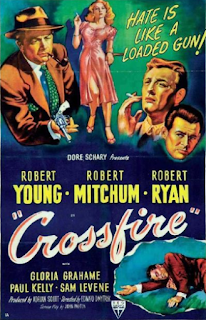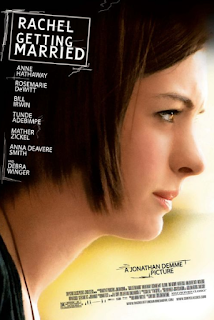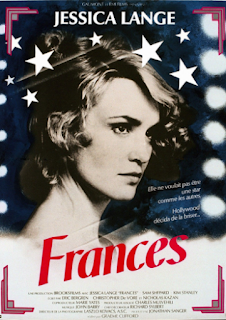My Best Friend's Wedding (1997)
When it was released in 1997, My Best Friend's Wedding was generally well-received by critics, it was a global box-office hit and it played a vital role in reviving Julia Roberts' career. Today, the film is still held in rather high esteem and it is regarded as one of the best romantic comedies of the 1990s. The movie's appeal is quite obvious: its leading stars are rather charismatic and the basic idea of the plot is fun and engaging. But it's also a dated film with various problems - its gender politics first and foremost.
Julianne (Julia Roberts) is a successful and renowned restaurant critic. Her best friend is Michael (Dermot Mulroney), a handsome sport journalist with whom she had a brief fling during college. Julianne and Michael had promised each other that, if by the time they were both 28-year-old neither of them were married, they would marry each other. Shortly before Julianne's 28th birthday, Michael calls her all of a sudden to tell her that he is engaged to marry Kimmy (Cameron Diaz), a 20-year-old student from a wealthy family. Julianne, realizing that she is in love with Michael, heads to Chicago intent on sabotaging the marriage.
It's a fine premise and also a very original one - how often is the lead of the rom-com a despicable, selfish character who does her best to spoil the happiness of other people? And the idea of having such a character played by one of America's most beloved and popular actresses was absolutely genius. But, having said that, the film fails to live up to its potential. There are some genuinely great moments in the film, such as the scene in which Julianne tries to embarass Kimmy, a terrible singer, by dragging her to a karaoke bar but the girl's heartfelt attempt wins her the cheers of the crowd. But for the most part the screenplay by Roland Bass fails to build something special from the inventive idea at its center and ends up following most of the tropes that are usually associated with the genre. The concept of having a somewhat villanous character at the centre of the story gets you hooked at the beginning, but the film loses steam rather soon devolving into a very standard rom-com and one that is not even especially funny. The characterization of George (Ruper Everett), Julianne's gay friend, is especially stereotypical and lacking of any sort of nuance and it's a testament to Everett's charming, endearing performance that he still emerges as the funniest character in the whole movie. The film is actually at its best when he is on-screen and he steals every single scene he's in despite the very poor writing of the character. When he is off-screen, the film is a blandly conceived love triangle and director P.J. Hogan turns to schmaltz far too often to create a genuine attachment to the central characters - also because there is no one to root for, since the character of Michael is just as unlikeable as Julianne albeit with even less substance and is completely unapologetic in his requestfor Kimmy to abandon her family and her dreams.
But the movie's most troubling aspect is its depiction of the two main female characters, which amount to little more than sexist stereotypes. Throughout the whole movie, Julianne is constantly bashed for being "unfeminine": the fact that she does not like the colour pink, that she does not like to dance and that her career is her priority are all qualities that the movie seems to suggest are supposed to make her even more unlikeable or ridicule. Julia Roberts' performance is fine - it's a nice reinvention of her usual persona, but she cannot escape either the corny, melodramatic scenes she is given later on in the film nor the lack of respect the film has for her character. The other character, Kimmy, is the total opposite: she is almost impossibly sweet, loyal and in many moments borders on being subservient. It seems to be the movie's idea of the "perfect woman" - a woman that seems to exist solely to be around her man. There are moments in the film in which Kimmy expresses her wish to complete her education (something that her marriage would make impossible) but the topic is soon abandoned and left unresolved. What makes it even more frustrating is that Cameron Diaz is actually wonderful in the part and plays the role with a heartfelt convinction that it does not deserve.
My Best Friend's Wedding has an interesting premise but fails to develop it properly - it's a movie that ends up following the tropes it wants to overturn. There are elements in it that work well, such as the karaoke scene, the touching moment between Julianne and a kind bellhop played by Paul Giamatti and the performances from Everett and Diaz. But ultimately it's a misfire that alternates moments of inert comedy and clumsy attempts at drama, all the while perpetrating sexist stereotypes that make the experience particularly excruciating to get through.
But the movie's most troubling aspect is its depiction of the two main female characters, which amount to little more than sexist stereotypes. Throughout the whole movie, Julianne is constantly bashed for being "unfeminine": the fact that she does not like the colour pink, that she does not like to dance and that her career is her priority are all qualities that the movie seems to suggest are supposed to make her even more unlikeable or ridicule. Julia Roberts' performance is fine - it's a nice reinvention of her usual persona, but she cannot escape either the corny, melodramatic scenes she is given later on in the film nor the lack of respect the film has for her character. The other character, Kimmy, is the total opposite: she is almost impossibly sweet, loyal and in many moments borders on being subservient. It seems to be the movie's idea of the "perfect woman" - a woman that seems to exist solely to be around her man. There are moments in the film in which Kimmy expresses her wish to complete her education (something that her marriage would make impossible) but the topic is soon abandoned and left unresolved. What makes it even more frustrating is that Cameron Diaz is actually wonderful in the part and plays the role with a heartfelt convinction that it does not deserve.
My Best Friend's Wedding has an interesting premise but fails to develop it properly - it's a movie that ends up following the tropes it wants to overturn. There are elements in it that work well, such as the karaoke scene, the touching moment between Julianne and a kind bellhop played by Paul Giamatti and the performances from Everett and Diaz. But ultimately it's a misfire that alternates moments of inert comedy and clumsy attempts at drama, all the while perpetrating sexist stereotypes that make the experience particularly excruciating to get through.
40/100




Haven't seen this, but I am interested in seeing Everett's performance. Have you seen "As Good as It Gets", Giuseppe? Because I've read some strange arguments about how Greg Kinnear stole Everett's spot for supporting actor, or how his take on a gay character was less effective. Personally, I think Kinnear is the best part of his film, and despite some VERY weak writing in certain scenes, gives a likable and heartfelt performance.
RispondiEliminaYes, I have seen "As Good as It Gets". I'd say the two performances are about on an equal level for me. Everett's character is more one-dimensional, but he gets his chances to shine throughout the film, whereas Kinnear has a richer, more three-dimensional role but is a bit underused overall. I'd say both gave effective performance and both were worthy of a nomination.
Elimina